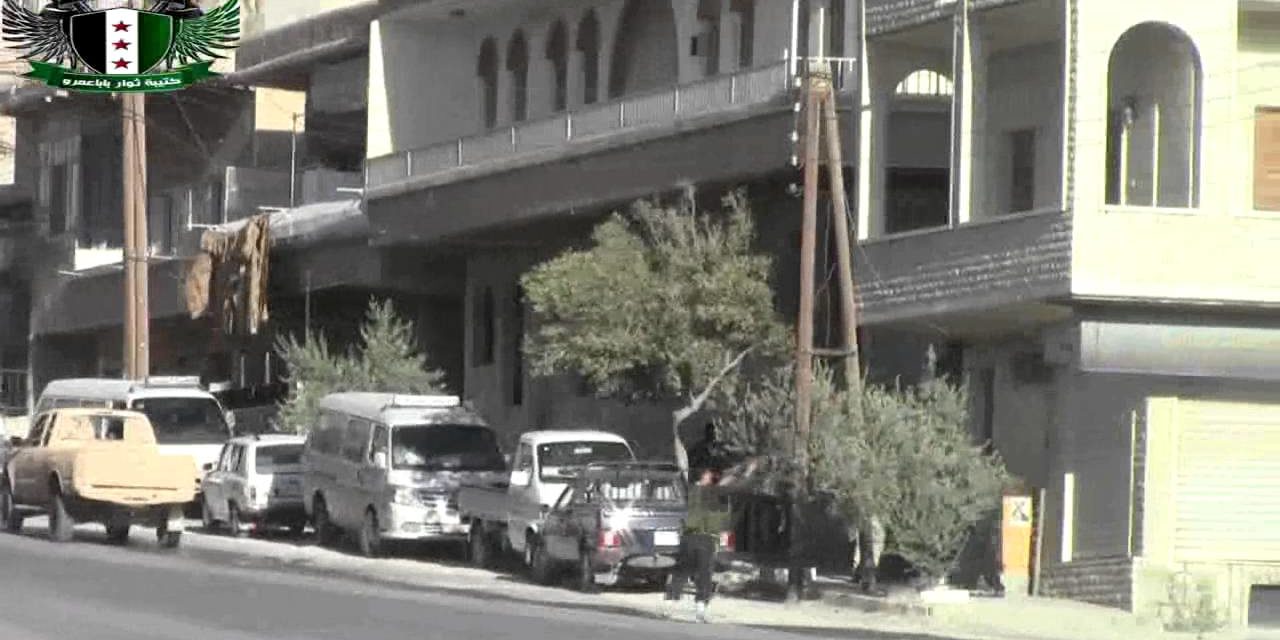Earlier this month, we covered the story of the insurgent takeover of Maaloula, a town north of Damascus famed for its ancient Christian heritage.
In particular, we queried the scare stories in the press — from the tabloid Daily Mail to the non-tabloid Daily Telegraph and New York Times — that “extremist jihadists” had overrun Maaloula and terrorised Christian residents.
See Syria Video Analysis: How Media Obsession with “Extremism” Misleads Us
We noted a series of videos in which insurgents claimed to seek protection of homes and churches and which showed that the main threat was coming from regime shelling. We also noted interviews, sometimes in the very stories that portrayed “extremist jihadists”, with residents and nuns that said local men were among the insurgents and that they had tried to reassure civilians.
VIDEO: Fighting in center of Maaloula, September 5:
Earlier this week Lina Sinjab of the BBC posted an article with additional interviews. She notes the initial attack, including a suicide bomber from the Islamist faction Jabhat al-Nusra, that destroyed a regime checkpoint and then narrates:
A number of armed men then entered the St Takla monastery in the north of the village and asked the nuns there whether there were any government soldiers hiding there.
“There were around 20 of them. They looked like Islamists, but they did us no harm,” one of the nuns told the BBC a few days after the incident.
“They told us they were after Bashar al-Assad and his army, not Christians,” the nun explained.
Then the armed men returned to the monastery, which is home to nine nuns and 35 others, children and elderly people cared for by the nuns. They all stayed in Maaloula, even during the intense fighting.
On their second visit, the nun explains, the men asked the nuns to make a video statement to the effect that they hadn’t been harmed or attacked by the rebels, which was then posted on YouTube.
The rebels then left their arms outside the monastery and climbed up to film the village from above in an attempt to prove that they left without causing damage or attacking the churches, according to the nun the BBC spoke to.
Yet Sinjab’s account also indicates that some in Maaloula wanted the regime to re-occupy the town, only to be “betrayed”:
Residents of Maaloula called on the army to come and protect them but as one resident said: “The army betrayed us and sold us to the media.”
The army arrived in Maaloula on Saturday 7 September and only stayed for a few hours, pulling out and allowing the rebels to enter again, the resident — who wished to remain unnamed — told the BBC.
And then there is an indication of tension between insurgents over the initial attack — and the message it would send beyond Maaloula, two days before a prayer for peace was due to take place in the town in response to a call by Pope Francis
Amer al-Qalamouni, the spokesman for Ahrar al-Sham and Qalamoun Liberation Front, a group of non-Islamist fighters affiliated with the Free Syrian Army, says the timing of the attack [by Jabhat al-Nusra] only benefited the regime’s narrative.
“The situation was going on for months, but suddenly the al-Nusra Front decided to attack the checkpoint,” Mr Qalamouni told the BBC.
“Members of Ahrar al-Sham and Qalamoun Liberation Front then participated in the clashes. The aim was never an attack against Christians but to deal with the checkpoint itself,” he goes on.
Mr Qalamouni said that he thought the Islamists of the al-Nusra Front had used the opportunity send a message to the West that they had no need of Western intervention.

